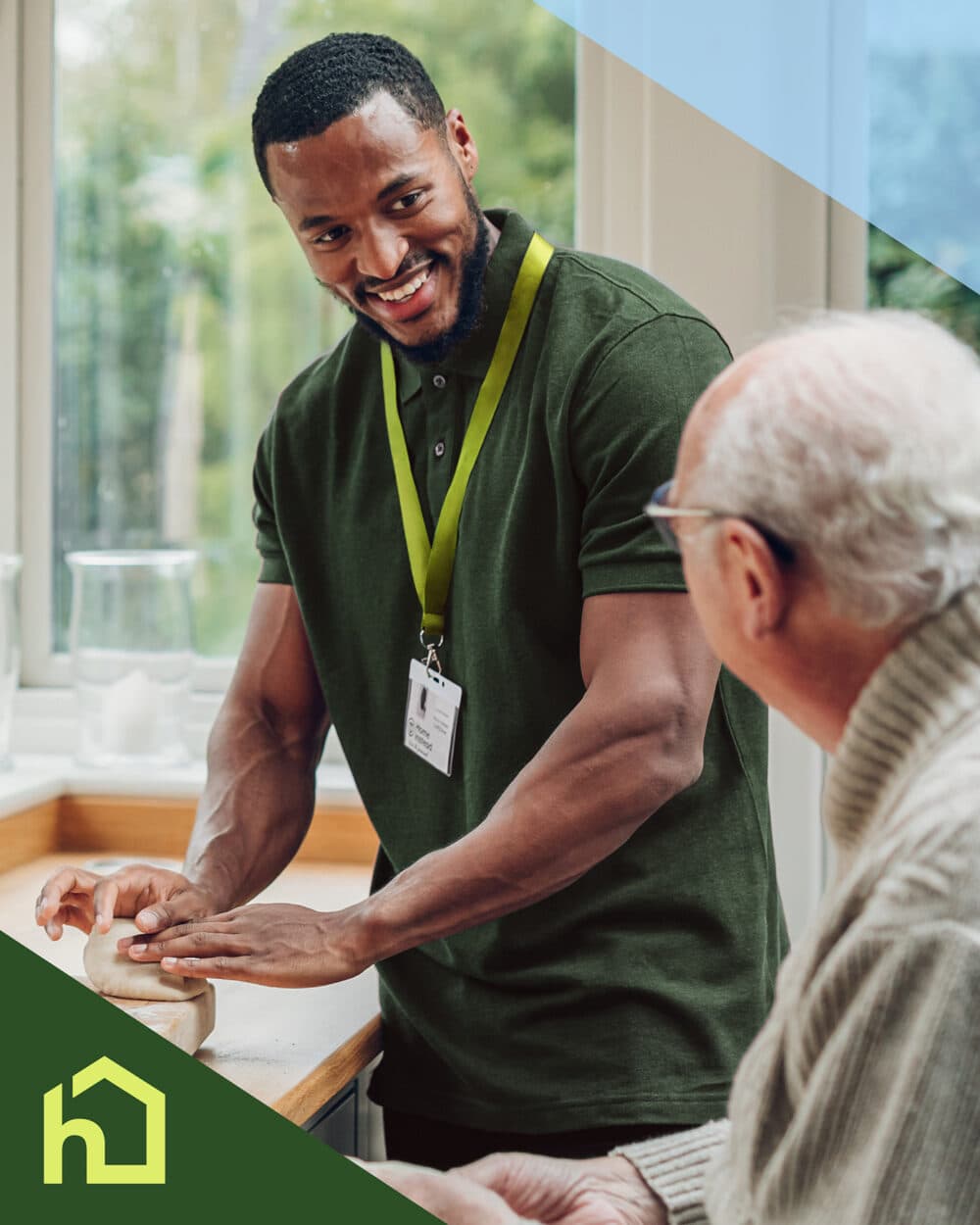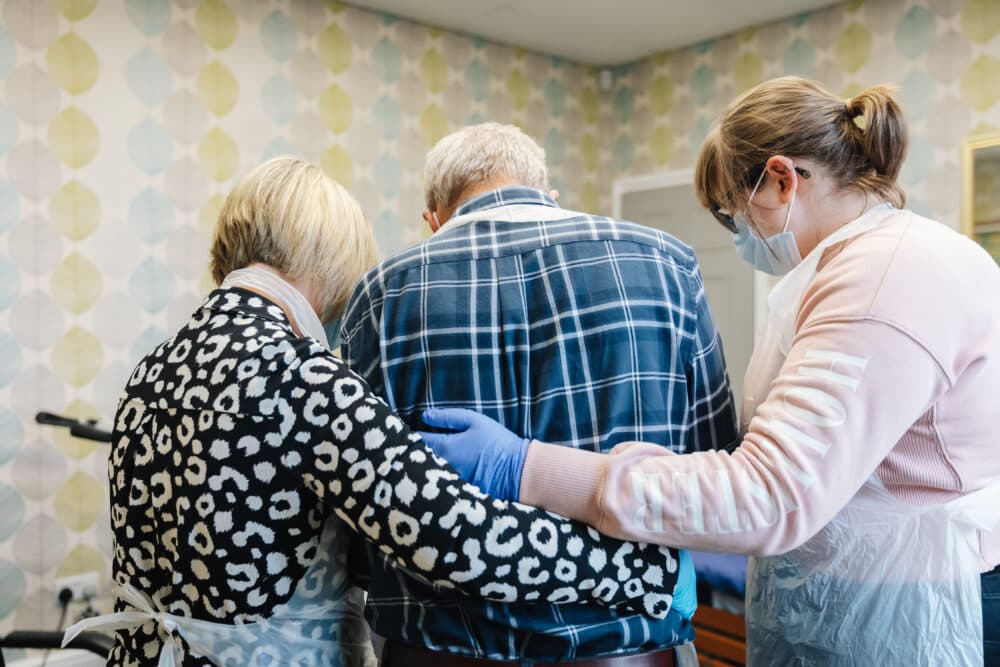Dementia Action Week 2025: How to support loved ones with Dementia

Tip 1: Keep Communicating
Communication is a great way to engage those suffering from dementia, which can ease the sense of isolation and a loss of self. Here are some pointers to help:
- Have topics you can discuss regularly. Reminiscing over happy memories is a great way to start an engaging conversation. Consider using memory books, games, and playlists to help you.
- Consider your tone and body language. Remember, if someone cannot understand your words, how you present yourself in that conversation is their only clue. Try to be relaxed and positive in your stance and tone.
- Be prepared to rephrase your questions. If someone missed a social cue or needs help understanding the conversation thread, rephrase your question or response. You don’t necessarily need more basic language, but you do need to create a more direct way to establish what you are asking.
-
Use humour. Last but not least, add some humour to the situation. Make it okay to use the wrong word or mispronounce things. Someone is much more likely to try if they think there is no judgment if they respond incorrectly.
-
Make it easier to respond. Breaking down your conversation into easier-to-digest information is helpful for those struggling with focus and comprehension. It also makes it much easier to answer because there’s less complexity in the language needed to engage with you.
-
Don’t correct or talk over someone with dementia. Imagine your frustration if someone did this to you (even if you aim to help). Instead, give your loved one time to finish their point or ask for help.
-
Be prepared to have the same conversation. It’s only natural that someone who is struggling with memory loss will repeat themselves. In the case of dementia, this can be several times in a day or hour. Learn to answer in the same positive and happy tone you used when you first answered.

Tip 2: Pick your Battles
There will be times during your journey together when you both feel a sense of friction. It’s a perfectly normal human reaction when two or more people live more closely together after living separately for some time. Mum will have her way of repotting the garden plants; Dad has his preferred routine for bath night—we all have a different approach. Friction occurs when you start butting heads.
Most of the time, choosing to do things their way helps you have the space and authority to institute new routines for the more critical aspects of their care, such as a routine for a new medication, introducing home care, or clinical treatment plans.

Tip 3: Promote Mental and Physical Activity
Research has been carried out into the positive effects of mental activity in dementia prevention. What we do not know for sure is the effects of cognitive activity on those already with dementia. However, we have found here at Home Instead that clients who came to us with little mental stimulation have seen a significant benefit in outlook and well-being due to mentally stimulating activities, such as recall exercises or social home care visits.
Physical activity also benefits those with dementia by promoting task independence, psychological health, and often related memory function. Simple leg, arm, and chair exercises are great to start with and something our carers institute with the dementia clients we visit.
Going for a walk can prove a great way for both mental and physical health so check out our blog for best parks and gardens to visit in Aylesbury and surrounding areas.

Tip 4: Make social interaction easy
We have already talked about communication, but being social is much more than that. It’s about interaction on a human-to-human level, sometimes without saying a word. And yet, it can be the most overlooked aspect of dementia care.
Encourage activities that you can do together. They could be simple things, like folding the laundry or enjoying tea in the garden. You don’t always need to talk, but when you do, keep things light to encourage task focus.
Encourage activities your loved one can do to help them interact with people outside their home. At Home Instead, we host a companionship cafe where clients and locals can meet people and interact. The difference this makes is a huge benefit to their independence and social sense of self.
Most of all, encourage just being together. Loneliness is debilitating. Engagement has a much more positive effect on independence and outlook.

Tip 5: Find the Right Assistive Technology
Another way to help your loved one feel they have a sense of independence is to lean into assistive technology. Tools and gadgets to help Mum or Dad focus, remember and understand.
We wrote a long list of tech that can support care of loved ones with dementia, and many of those contact points will be helpful for you here in Aylesbury Vale and North East Oxfordshire.
To add to that list are those that might be useful in dementia care. Tools like:
- gas safety values for ovens and hobs
- safety plugs for baths and sinks to avoid overflow
- GPS trackers for tracking and tracing
- fidget widgets for exercise
Consider what, where and how you can use assistive technology to promote independence.

For more information and support contact our team for Aylesbury Vale and North East Oxfordshire on 01269410029.
Live Well, Your Way
Download our brochure and find out more about our outstanding services.
– Personal care
– Dementia care
– Live-in care
– Companionship
– Home help